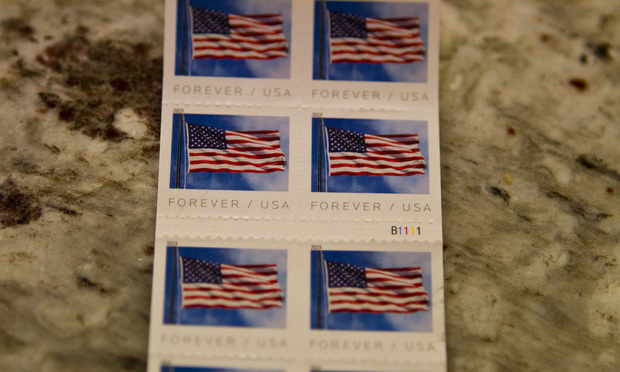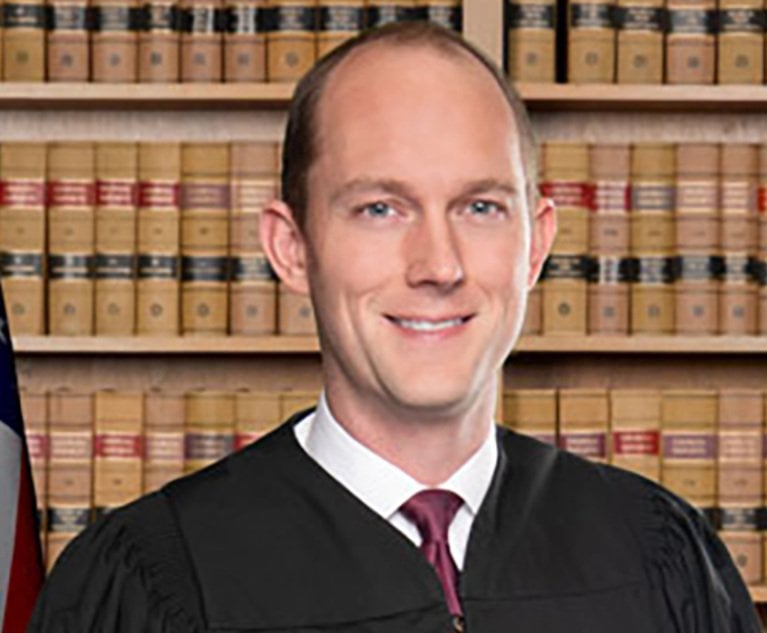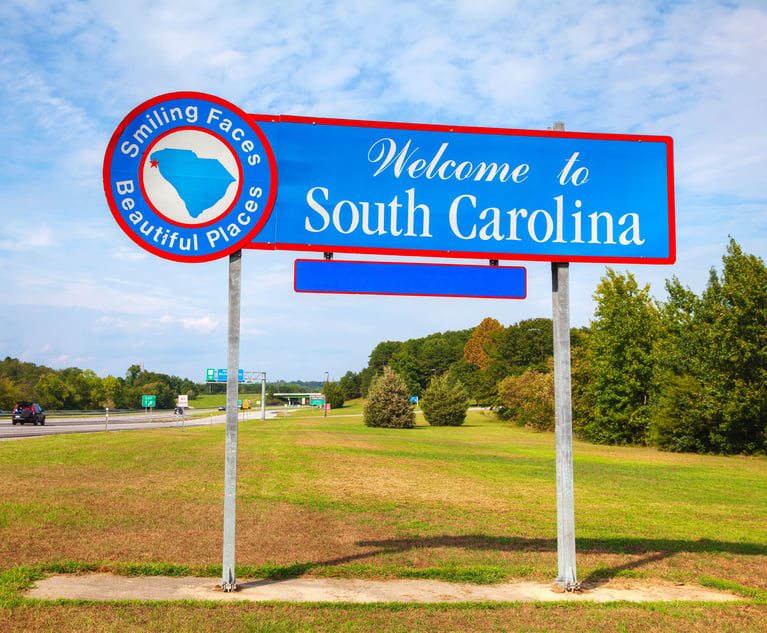The ACLU of Georgia filed a federal lawsuit Wednesday alleging that requiring voters to pay postage for mail-in ballots amounts to an unconstitutional poll tax.
“This case is about protecting American democracy at a time when we are facing a worldwide pandemic,” the complaint said. “Though the stakes are high, the legal claim is simple. The United States Constitution (through the Twenty-Fourth and Fourteenth Amendments) bans poll taxes. Georgia election officials require voters to use their own postage when submitting mail-in absentee ballots and applications. Postage costs money. Thus, Defendants have imposed a poll tax in violation of the Constitution.”
 Sean J. Young, legal director, ACLU of Georgia. (Photo: John Disney/ALM)
Sean J. Young, legal director, ACLU of Georgia. (Photo: John Disney/ALM)
“Because of the pandemic, the number of voters who mail in ballots will skyrocket,” ACLU of Georgia Legal Director Sean J. Young said in a news release after filing the lawsuit in the U.S. District Court for the Northern District of Georgia. “It is all the more imperative that unconstitutional barriers like this poll tax be removed immediately.”
Young represents Black Voters Matter, “a non-partisan civic organization whose goal is to increase power in communities of color,” according to the lawsuit.
The group is asking for an immediate and permanent injunction to stop the office of Secretary of State Brad Raffensperger from requiring voters to pay postage on mailed ballots. Time is critical with the next election set for May 19. That includes the presidential preference primary, nonpartisan judicial elections and local races.
“By refusing to provide voters with postage paid envelopes, the secretary of state has not only imposed a poll tax on individual voters, he has placed an undue burden on the organizations dedicated to increasing voter turnout. His failure has forced organizations such as ours and local community groups to shift time and money to dealing with the postage issue,” Black Voters Matter Fund co-founder and executive director Cliff Albright said in the ACLU news release. “Every minute and every dime we spend helping voters to navigate the postage requirement means we have fewer resources for other voter mobilization efforts. Given the history of the secretary of state’s office viewing voter mobilization organizations as threats, rather than vital components in strengthening democracy, one can’t help but wonder if this undue burden was actually one of his objectives.”
Also Wednesday, two voting rights groups asked the secretary of state to mail absentee ballots to all registered voters, not just active voters. New Georgia Project and Advancement Project National Office said they sent a letter to Gov. Brian Kemp and Raffensperger “demanding immediate changes” to the state’s upcoming primary election procedures in response to the COVID-19 pandemic to protect voting rights. The letter also asked the secretary of state to streamline the absentee ballot application and return process and expand early voting time.
Meanwhile Wednesday, the Georgia Department of Community Health COVID-19 daily status report showed 9,901 cases, 1,993 people hospitalized and 362 deaths. Gov. Brian Kemp extended the statewide shelter in place order to April 30, 2020. He also suspended all vacation rentals across the state.
The secretary of state’s office had no immediate response. Defending the case will fall to state Attorney General Chris Carr. His spokesperson said Wednesday the office is reviewing the lawsuit but won’t have comment on it.
Because of the COVID-19 crisis, voters have already been mailed ballot request forms, but those also require postage.
“To be sure, many wealthy and middle-class voters see little problem paying 55 cents to avoid voting in person. While unconstitutional, the postage requirement barely fazes them,” the complaint said. “But this case is not really about middle-class or wealthy people. This case is about marginalized voters who come from communities who have historically faced over a century of racist voter suppression, including the use of poll taxes to disenfranchise voters.”
The complaint described those “who live on shoestring budgets and lack access to all the resources such as time, money, and transportation that wealthier people take for granted.”
Postage poses a burden “unfathomable to wealthier people,” the complaint said. “Many lower-income voters do not have postage stamps. They no longer need to use them or have never needed to use them. They cannot be expected to needlessly expose themselves to the pandemic just to get stamps in order to vote. That assumes they can even get there, when many do not have cars, and ride-sharing and public transportation is non-existent in rural parts of the state. Voters without Internet access or a credit card cannot buy stamps online, and if they do, they must unnecessarily purchase an unaffordable book of stamps (about $10) because they aren’t allowed to buy just one. Making matters worse, voters are left guessing about how much postage to use because ballots vary in size and weight. So they must add potentially unnecessary extra postage just to be safe from the risk of being disenfranchised.”
NOT FOR REPRINT
© 2024 ALM Global, LLC, All Rights Reserved. Request academic re-use from www.copyright.com. All other uses, submit a request to [email protected]. For more information visit Asset & Logo Licensing.


 (Photo: John Disney/ALM)
(Photo: John Disney/ALM)





